On April 04, 2022 the President signed into law amendments to the Copyright Act, the Employment Act, the Kenya Deposit Insurance Act, and the Industrial Training Act. We discuss the important changes introduced below.
Copyright (Amendment) Act, 2022
This amends the Copyright Act to provide for a revenue sharing formula for proceeds from Ring Back Tunes. The Act defines Ring Back Tunes as subscription music or tones played by a telecommunication operator to a caller. The changes were pushed for by content creators who felt leaving this to contract negotiations was unfair to them.
Proceeds from Ring Back Tunes will be shared as follows:
- premium rate service providers – 8.5%
- telecommunication operators – 39.5%
- artists or owners of the copyright – 52% to be paid directly not through a collective management organization.
Contracts between service providers and artists entered into before the commencement of the act will continue being valid. Any contracts entered into after the changes must conform with the above change.
Employment (Amendment) Act, 2022
The changes prohibit employers from requiring any clearance or compliance certificates unless they intend to employ the applicant. The changes do not completely remove background checks but rather reduce the technicalities faced by job applicants during the job application process. The changes also empower an employer to withdraw an offer if the candidate does satisfy the requirements set out in Chapter Six of the Constitution (Leadership and Integrity). Chapter Six has for a long time only been applied in respect of public entities. This means private sector employers may now require clearance from relevant entities to satisfy themselves of the integrity of candidates.
We also note that at the time of publishing this alert, the Statute Law (Miscellaneous Amendment) Bill, 2022 has been tabled before the National Assembly. This Bill seeks to remove the requirement for clearance from the Ethics and Anti-Corruption Commission (EACC) before applying for government jobs. The proposed change will see the recruiting agency submit its applicant shortlist to EACC for verification of their integrity suitability verification within 7 days of shortlisting. This will effectively shift the burden of proving compliance to the employer.
Lastly, The Employment (Amendment) Act has barred ‘relevant public entities’ from charging fees to issue compliance or clearance certificates. These public entities will also be required to issue the certificates within 7 days of a request. However, the Act has not defined ‘relevant public entities’
Kenya Deposit Insurance (Amendment) Act, 2022
The Kenya Deposit Insurance Act has been amended to increase the insurance limits on deposits. The maximum amount payable to a customer has been increased to KES 500,000 from KES 100,000. The increase is driven by prevailing economic realities and the need to enhance consumer protection in light of increased bank receiverships.
Initially, the proposal was to increase the limit to KES 1,000,000 but this raised concerns that the increased insurance costs would require additional government funding to Kenya Deposit Insurance Corporation (KDIC). Another rejected proposal sought to allow for compensation per account rather than per depositor. This proposal was dropped as it was contrary to global deposit insurance standards, e.g., OECD (Organisation for Economic Co-operation and Development) and FDIC (Federal Deposit Insurance Corporation) standards.
Comparatively, the USA (FDIC) insures a maximum of USD 250,000 per depositor while the European Union (EU) insures a maximum of EUR 100,000 per depositor (KES 29,000,000 and KES 12,400,000, respectively, at current exchange rates). This, however, does not reflect deposits held, for example, 57% of US account holders have deposits below USD 1,000 while Central Bank of Kenya’s statistics show 97% of Kenyan accounts hold below KES 100,000.
As is evident, while the change protects a higher amount of deposits, Kenya still insures a lower amount than other nations. Given the intention of the Act is to protect the overall economy, greater efforts should be made to insure larger amounts. Lastly, KDIC now has 6 months to make payments to depositors from the previous 1 month.
Industrial Training (Amendment) Act, 2022
The changes have transferred assessment and collection of industrial training levy and fees from the National Industrial Training Authority (NITA) to the Kenya Revenue Authority (KRA). This change was informed by NITA’s lack of capacity.
The changes further amend the timelines for remission of training levies. The levy is now payable by the 5th day of each succeeding month. The changes envisage a monthly levy whereas the Industrial Training (Training Levy) Order still provides for an annual levy. We expect this mismatch will be addressed in due course.
The changes have also prescribed utilization of the Training Levy Fund: 60% to reimburse employers training costs, 20% for establishment of vocational and training institutions with 10% to HELB to fund students in such institutions, and 10% as approved by the National Industrial Training Board.
Click to Download
DISCLAIMER:
This briefing is a highlight of legislative and policy changes and is intended to be of general use only. It is not intended to create an advocate-client relationship between the sender and the receiver. It does not constitute legal advice or a legal opinion. You should not act or rely on any information contained in this legal update without first seeking the advice of an advocate.


